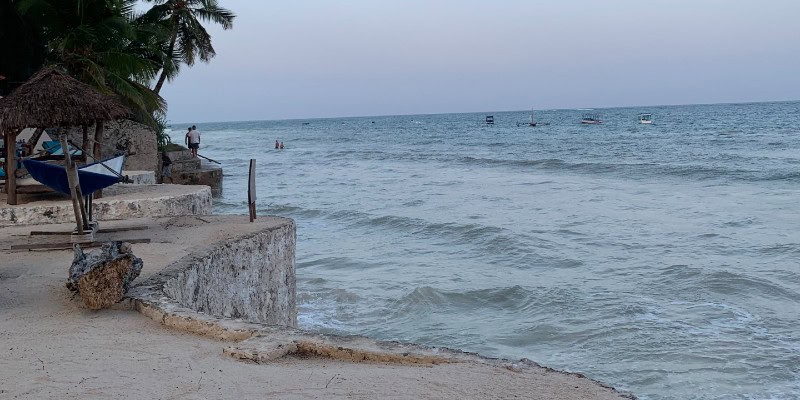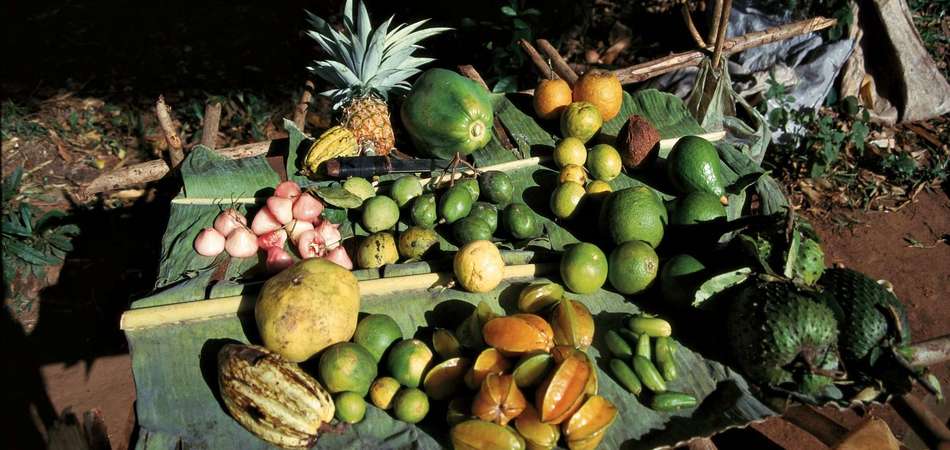Spice tour, jozani forest and stone town tour
Tour snapshot
10 Hours
20 persons
Tanzania Zanzibar
Day Trips
Overview
Zanzibar is renowned for its stunning natural beauty and rich cultural heritage, and two of its standout experiences are the Spice Tour and the Jozani Forest and Stone Town Tour. These tours offer travelers an incredible opportunity to immerse themselves in the island’s agricultural history and ecological diversity, making Zanzibar a must-visit destination.
The Spice Tour: A Flavorful Adventure
The Spice Tour invites visitors to explore the vibrant spice plantations that have earned Zanzibar its title as the “Spice Island.” This immersive experience allows travelers to see, smell, and taste a wide variety of spices, including cloves, nutmeg, cinnamon, and vanilla, all while learning about their historical significance and uses. Knowledgeable local guides share stories of Zanzibar’s rich spice trade, offering firsthand insights into how these precious ingredients are cultivated and harvested.
Participants will also enjoy sampling tropical fruits like jackfruit, durian, and mangoes, enhancing the overall sensory experience of the Spice Tour. This not only educates visitors about the island’s agricultural methods but also highlights the integral role spices play in Zanzibari cuisine and culture.
Jozani Forest: A Biodiversity Paradise
Following the Spice Tour, many travelers choose to visit Jozani Forest, located on Unguja, the main island of Zanzibar. This protected area is a biodiversity hotspot, home to the endemic Red Colobus monkey, a species unique to Zanzibar. Guided walks through Jozani Forest allow visitors to encounter these playful monkeys in their natural habitat while learning about conservation efforts aimed at preserving this endangered species.
As you navigate well-maintained trails, the lush greenery and dense mangroves reveal the interconnectedness of various species within this unique ecosystem. Educational signage enhances the experience by imparting information on the forest’s ecological significance and its role in combating climate change.
Stone Town: A Tapestry of Cultures
After immersing in nature, many tours continue to Stone Town, a UNESCO World Heritage Site rich in history and culture. Stone Town showcases a blend of Arab, Persian, Indian, and European influences, evident in its narrow streets, intricately carved doors, and historical architecture. Key landmarks like the House of Wonders and the Old Fort provide a glimpse into Zanzibar’s past and cultural evolution.
Visitors can engage with local artisans in the bustling markets, sampling delicious Zanzibari dishes at local eateries or street food stalls. The culinary diversity reflects the island’s multicultural heritage, with flavors that tantalize the palate.
Connecting Nature and Culture in Zanzibar
The combination of the Spice Tour, Jozani Forest, and Stone Town Tour offers a holistic view of Zanzibar, weaving together the island’s agricultural richness, ecological diversity, and historical depth. These tours not only enhance visitors’ understanding of the significance of spices in shaping Zanzibar’s economy and culture, but they also promote the importance of conservation in preserving its unique ecosystems and cultural heritage.
Engaging with passionate local guides fosters a sense of responsibility among travelers to support sustainable tourism practices, ensuring that Zanzibar remains a captivating destination for generations to come.
Included
Select Dates
{{type.name}}
{{type.desc}}
{{type.display_price}} per person
Guests
Extra prices:
- {{total_price_html}}
- {{pay_now_price_html}}
Guest in maximum
BOOK NOW Book NowImportant information
Itinerary
FAQs about
Spice tour, jozani forest and stone town tour
The Spice Tour takes you through Zanzibar’s famous spice plantations, where you’ll see, smell, and taste spices like cloves, nutmeg, cinnamon, and vanilla. Guides explain the history and cultivation of these spices and their importance to Zanzibar’s culture and economy.
Yes, visitors get to sample tropical fruits such as jackfruit, durian, and mangoes, enhancing the sensory experience of the tour.
Jozani Forest is a protected biodiversity hotspot and home to the endemic Zanzibar Red Colobus monkey. Visitors enjoy guided walks through the forest, learning about the ecosystem, conservation efforts, and local wildlife.
Yes, Jozani Forest has a variety of flora and fauna, including mangrove ecosystems and many bird species. The forest offers educational insights into its ecological importance.
Stone Town is a UNESCO World Heritage Site famous for its rich cultural heritage and architecture influenced by Arab, Persian, Indian, and European cultures. Key sites include the House of Wonders, Old Fort, markets, and artisan shops.
Visitors explore historic landmarks, shop at local markets, and taste traditional Zanzibari foods, offering a deep dive into the island’s multicultural heritage.
Guest reviews
You might also like
Dolphin & Marine Conservation -Make a Difference in one of the most beautiful destinations
Tanzania Zanzibar









